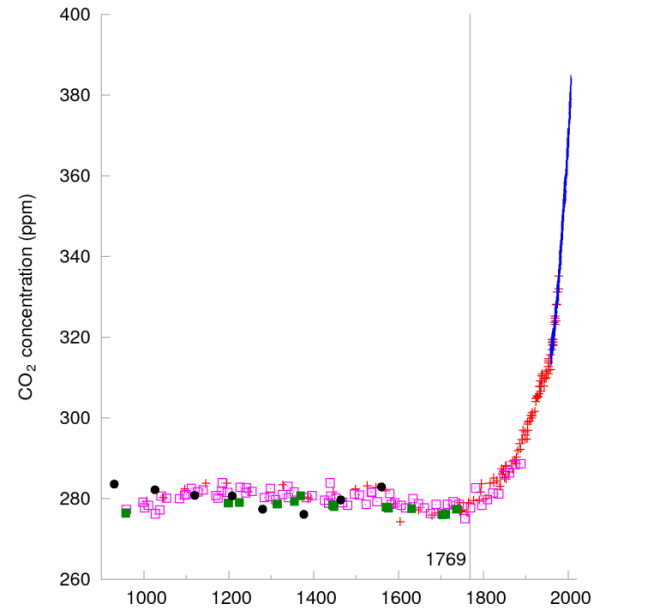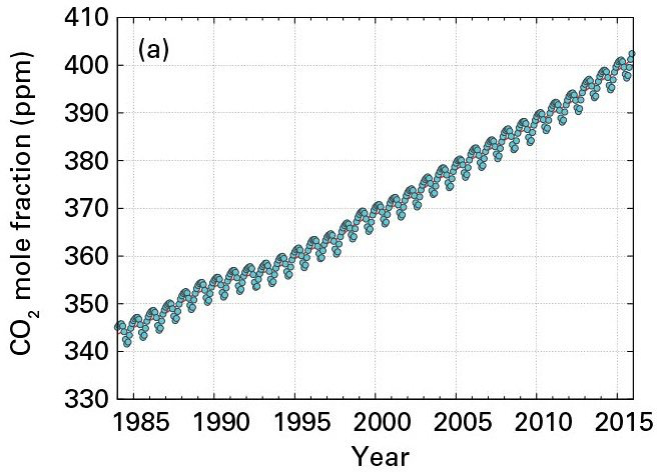Concerned constituents have written to their MP Mr Jacob Rees-Mogg about Hinkley Point nuclear power station and the need to decarbonise our power sector in a cost effective and timely manner maximising the use of non-nuclear renewables. Regarding renewables Mr Rees-Mogg responded:
“I also understand that some people would like the Government to spend more money on renewable energy instead of nuclear power. It is important to remember that the United Kingdom produces approximately only 2% of the world’s carbon emissions. It is, therefore, more important that the UK Government ensures that the most vulnerable people in society are protected rather than producing renewable energy that, even though it may be greener, is nonetheless unreliable and would raise energy bills for everyone. Households are already estimated to be paying £60 per year which may rise to £226 by 2020 owing to subsidies for renewables. I have included an article explaining this potential rise for you reference“.
Giving this Telegraph article as evidence.
It sounds reasonable but what lies beneath this logic and evidence?
Emissions
It is true that the UK only produces about 2% of the world’s annual carbon emissions but it is our cumulative emissions that define our climate change impact. As the UK was at the forefront of the Industrial Revolution we have a head start on the rest of the world and we come 7th in the world’s cumulative emissions ranking after the USA, China, Russia, Brazil, India and Germany. On a per capita basis the UK has historically produced more CO2 emission than any other country in the world. That is quite an achievement. This places a heavy moral responsibility on the UK to take a lead in reducing our national and per-capita emissions considering that we have already hogged such a dis-proportionate slice of the world’s safe carbon budget. See National contributions to observed global warming.
Morals
Fulfilling this moral responsibility (to both the rest of the world and to future generations) to reduce emissions is not mutually exclusive with fulfilling our moral responsibility to help those in our society in fuel poverty. Presenting it as an either/or choice is a false dichotomy. Those in fuel poverty can be helped with energy efficiency measures or by putting the costs of developing renewable energy onto general taxation rather than on bills, so that those who can pay do pay. This does not preclude also dealing with climate change. Similarly, dealing with climate change using renewables doesn’t mean living in caves – another of Mr Rees-Mogg’s false dichotomies.
Subsidies
What of Mr Rees-Mogg’s assertion that renewable subsidies on household bills “may rise to £226 by 2020”? In a nutshell Mr Rees-Mogg has cherry-picked a confused and incorrect journalistic article (from a paper he writes for) rather than referring to the transparent analysis of the government’s statutory advisors. He also ignores the vastly larger subsidies that are given to the fossil fuel industry.
So, Mr Rees-Mogg i) misrepresents the UK’s contribution to global warming, ii) makes a false moral argument about fuel poverty based on i, and iii) uses a set of incorrect statistics to exaggerate renewable subsidies whilst ignoring fossil fuel subsidies and readily available credible estimates from authoritative sources.
Chapter & Verse
Mr Rees-Mogg quotes from an article by the Telegraph’s deputy political editor Stephen Swinford (19/3/2015) who says “Green levies on energy bills will treble by 2020 because of renewable targets, official figures suggest”, attributing the figures to the Office of Budget Responsibility, although Mr Swinford gives no source for the figures which seem impossible to verify, including by climate sceptic bloggers. Mr Swinford adds “Separate figures published last year show that the policies account for 5 per cent of energy bills at present – equivalent to £68 a year – to 15 per cent of an annual energy bill by 2020, equivalent to £226”, quoting the Telegraph’s energy editor Emily Gosden (6/11/2014) in Green levies on energy bills to double by 2020, official estimates show.
However, Mr Swinton isn’t quoting Ms Gosden he is miss-quoting her and has taken the estimated 2030 subsidy and moved it to 2020 creating not a doubling but a trebling of the subsidy by 2020. As presented in Ms Gosden’s article the correct figure for 2020 is £141, not £226.
Mr Swinton ploughs on regardless and quotes from a report by the Centre for Policy Studies (18th March 2015) saying “Scrapping the UK’s green energy targets in favour of gas-fired power plants would save consumers £214 a year by 2020, the report suggests – despite ministers’ insistence that the total impact of the policies will be only £141 per household by then”. So having replaced the government’s 2020 estimate with the 2030 estimate, as reported by his energy editor colleague, he then mistakenly uses another report referring to 2020 to erroneously justify the mistake he has made whilst also mentioning the correct figure for 2020 of £141.
This is seriously shoddy journalism on the part of the Telegraph, but it gets worse.
What is this Centre for Policy Studies (CPS) report, what does it say and who wrote it? The report’s main message is that “ditching the renewables target and returning the sector to the market would save households around £214 a year, assuming gas replaces renewable power” and that “This option would depend on securing a permanent opt-out from the EU renewable directive”. The report concludes, “ditching renewables and encouraging shale fracking is better economics and more effective at reducing carbon dioxide emissions”. These conclusions are based in part on work by Professor Gordon Hughes for the Renewable Energy Foundation (REF) and emails to the CPS report author. Professor Hughes has produced reports on wind power for both REF and Lord Lawson’s Global Warming Policy Foundation (GWPF). Both REF and GWPF are climate sceptic and anti-renewable energy, although this may not be immediately obvious to the casual viewer of their web sites. The GWPF has been a relentless promoter of hydraulic fracturing. The director of REF is GWPF’s energy editor and has recently joined the GWPF’s, so called, Academic Advisory Council. Professor Hughes’ work on wind for these organisations has been robustly debunked by the late by Prof David MacKay of Cambridge University, by Imperial College and by the UK Energy Research Centre. CarbonBrief also comment.
In her Telegraph article reporting on the CPS report Emily Gosden said the DECC points out (but Swinton ignores) that “The figures in this report don’t add up and ignore the urgent need to cut our carbon emissions.” DECC unusually published a rebuttal of the CPS report saying “The report today by the Centre for Policy Studies ignores the reality of the energy market. It wrongly suggests that we can ditch renewables for gas, with no explanation of where we would source that from. It also appears to suggest that we should row back on the tremendous gains we have made in the fight on climate change. Given the dire consequences of global warming this is not an option”.
The CPS report was written by Rupert Darwall who is a prominent climate sceptic and who has published with the most prominent climate sceptics some of whom have been outed as being paid by the fossil fuel industry.
What do the various renewable subsidies actually mean for household energy bills? CarbonBrief provided a clear explanation of what these figures mean (7th November 2015).

CarbonBrief.org graphic of the same data, showing how bills are predicted to be lower with renewable policies than without – including support for households in fuel poverty and network costs
As we move forward these estimates will change and Mr Rees-Mogg would probably do better to read the government’s statutory advisor’s report Power sector scenarios for the fifth carbon budget (October 2015) with analysis by Imperial College. This shows that the likely cost to consumers of renewables in 2020 is £105, not £226 nor £214 or even the £129 in the above graphic. And for that we get to meet our climate change commitments and deal with renewable intermittency issues and support households in fuel poverty.
Why does Mr Rees-Mogg choose to use unreliable information sources rather than the robust and transparent analysis of the Committee on Climate Change?















